Accessibility Support

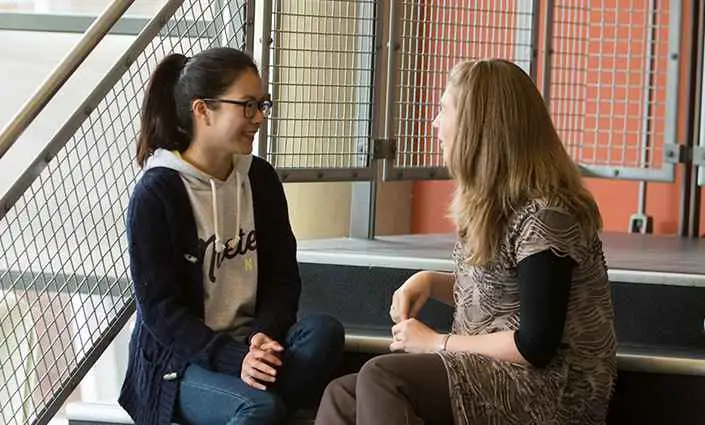
Regular lunchtime hui bring these learners together and enable NMIT to hear their community wants and needs.
NMIT offers support on a case-by-case basis for any learner with additional needs, online and on all campuses.
Learners who may have disabilities, impairments, neurodiversity, learning challenges, or health conditions are encouraged to discuss their needs and possible support with staff.
You can find our Learner and Academic Success teams in your campus library spaces, make a booking(external link) or email: accessibility@nmit.ac.nz
| We support learners with the following challenges and more. | We plan with the learner the support they may need. |
|---|---|
|
|
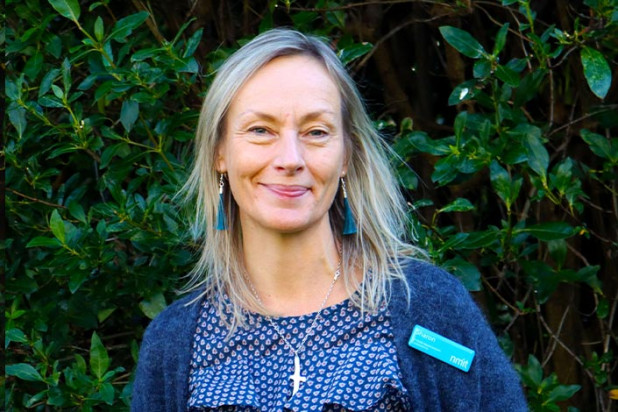
Sharon Thomas
Kai Tahu, Kāti Māmoe, Waitaha | Dip Art Des | Student Success Advisor
Kia ora. I’m from Hokitika, but have lived in Whakatū for decades. My kete gathers skills from diverse customer-centred roles (e.g., legal, tourism, arts), and I have supported NMIT ākonga for over 10 years. I enjoy connecting, listening, and collaborating on solutions to help ākonga thrive. I also help with digital skills and assistive technologies.
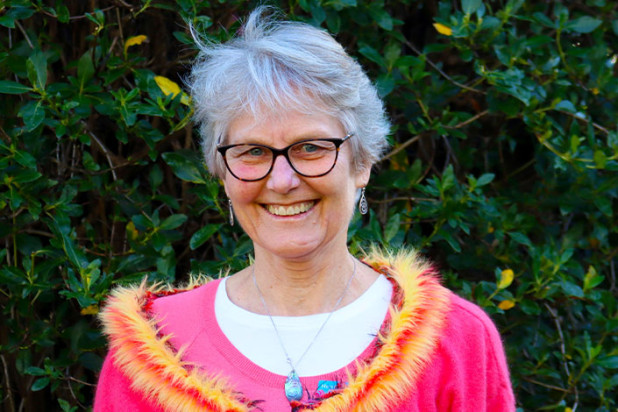
Heather Verstappen
BA, BSocSci, GDipTchg, PGDipSLTchg, GCertNDD | Study Support Advisor
Kia ora. I'm keen to help you overcome any barriers and can assist you in managing time, planning assignments, capturing your ideas, and writing in an academic style. I enjoy working with ākonga who have different ways of learning (neurodiverse) and who may face challenges with reading, writing, and focusing. I've taught English to speakers of other languages and enjoy working with ākonga from different cultures and backgrounds.
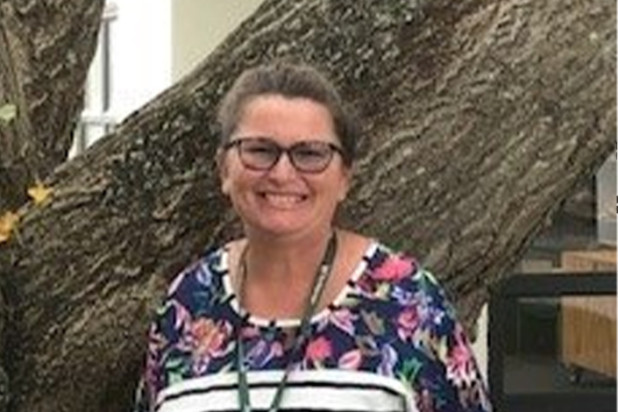
Emily Hargreaves
Dip Tchg | Wellbeing Support Advisor | Marlborough
Kia ora. My whānau home base is Whakatū, but I live in Waitohi. I started at NMIT after being a primary school teacher and principal. My greatest joy is seeing others succeed. I provide diverse support and solve tricky problems in innovative ways. I hope to be part of your learning journey.
FAQ
The decision to disclose information to our Learner Success Team is personal.
Your information will remain confidential. With your consent, to best meet your needs and avoid repeatedly explaining your needs, it may be helpful to liaise with NMIT staff and/or community services.
Special conditions for assessments ensure that ākonga with disabilities and impairments can demonstrate their knowledge and skills in a variety of ways, providing equitable opportunities.
For example, Reader/Writers, large print, separate rooms, access to digital devices, extra time, verbal assessments, rest breaks, NZSL interpreters.
For detailed information about alternative arrangements for test/exams(external link), see information from ACHIEVE(external link) (The National Post-Secondary Education Disability Network).
To request alternative arrangements for exams or tests
10 business days before the exam date, the tutor or programme support coordinator will;
1. Ensure evidence of the learners’ disability/impairment is held by Accessibility Support
2. Book a separate room as close as possible to the test/exam location
3. Use the online form(external link) to request support for Reader/Writer or special conditions for assessments, which includes ākonga name and ID, course, tutor, test name/date/start time/end time/location, special conditions, equipment/technology, and pre-confirmed separate room booking
On receipt of the request, Accessibility Support will
4. Email a calendar invitation to the learner, tutor and Reader/Writer to confirm date, time, location, and alternative arrangement for the test/exam.
For any last-minute issues before or during the test/exam, contact the Reader/writer directly.
What is Dyslexia?
Dyslexia is a lifelong learning difference that affects individuals' ability to read, write, and spell. Dyslexia is not an indication of low intellect. People with dyslexia may have challenges with short-term memory, time management and verbal and cognitive processing speed. Positive aspects of dyslexia are visual and spatial skills, innovative thinking, creativity, strong empathy and cooperation skills.
- The most obvious signs of dyslexia are poor reading, writing and spelling skills.
- Dyslexia affects at least 10% of the population, including all genders and cultures.
- Dyslexia lasts a lifetime: People do not grow out of it.
- Dyslexia is a genetic condition passed down across generations.
- Most people with dyslexia are not formally diagnosed and are not aware of their condition.
What support is available at NMIT?
If you have trouble with reading, writing, note-taking and spelling, you may have dyslexia.
Talk with our dyslexia specialist to make an individual access/learning plan which may include;
- Complete an on-site dyslexia screening test
- Regular one-to-one study support sessions
- Access free assistive technologies like text-to-voice and voice-to-text apps
- Access to Helperbird Dyslexia Assistant(external link), Grammarly(external link) EDU writing assistance, and Genio(external link) notetaking/recording
- Borrow Smart Pens (to record classes) and CPens (to have texts read aloud) from the Library Helpdesk
- Access to Reader/Writer support for tests and exams
- Use the Accessibility toolbar and dyslexic font from the Moodle platform
Email : accessibility@nmit.ac.nz
Assistive technologies help make studying easier and may include computer programs, web-based tools, mobile phone apps, Microsoft 365 functions and add-ons, and Chrome apps and extensions.
If you need help accessing or using these technologies, contact us.
For help with reading
- Use the Open Dyslexia Font(external link) and Google Chrome extension Dyslexic Browser(external link) to help with reading if you have Dyslexia.
- Use Helperbird(external link) the reading, writing and accessibility assistant - sign up here for free access(external link).
- Use Immersive Reader in Microsoft 365 to read aloud, change font size and text spacing, and change background colours. Watch this 1 min YouTube video(external link) for instructions.
- Borrow the CPen from the Library Helpdesk to scan lines of text and have them read aloud. Watch this 1 min YouTube Video(external link) for instructions.
For help with writing
- Use Grammarly(external link) to check spelling, grammar, word choice and writing style; ask us about free access to the EDU version.
- Use Google Docs(external link) or MS Word to dictate and change your speech to written text. Watch this 1 min YouTube video(external link) for instructions.
- Use Google Dictionary(external link) to check word meanings and choose synonyms.
- Use Wordtune(external link) to select alternative sentence structures purposefully.
For help with listening and note-taking
- Use Genio(external link) to record lectures, add notes, transcribe audio, and more - ask us about free account access.
- Use Wondershare Edraw(external link) to create mind maps and diagrams.
- Borrow the Livescribe Echo Pen from the Library Helpdesk to scan lines of text and have it read aloud. Watch this 1 min YouTube Video(external link) for instructions.
For help with translations
- Use DeepL(external link) to translate between languages
For help with noise/sound sensitivities
- Wear Flare Calmer(external link) earbuds to reduce annoying noises without blocking sound.
For help with Maths
-
Use DysCalculator(external link), a calculator designed for people with dyscalculia
For help with Study Skills
- Use Goblin Tools(external link) Magic ToDo - for breaking down tasks
- Use RoutineFlow: Routine for ADHD(external link) - for creating daily routines and staying on track
Connecting to your community while studying is a good way to get support yourself. Talk to us if you need help connecting with people out in our communities.
National Disabled Students’ Association(external link) – A non-partisan national body that represents disabled tauira, and aims to challenge the collective barriers facing disabled tauira within the tertiary education space.
ACHIEVE(external link) - A national network established to ensure equal opportunity and access to tertiary education for people living with impairments. See Achieve Useful Links for more NZ resources.
Inclusive Education Toolkit(external link) – A guide to support students to transition into tertiary education.
ADHD Attention Deficit Hyperactivity Disorder
- For formal assessment, contact local Professional ADHD Assessors(external link).
- For funding for ADHD assessments, contact A Change for Better(external link)
- Use ADHD Support Organisations(external link) for helpful resources.
Autism
- Use Autism Altogether(external link) for support and resources, including those in our local region(external link).
- Watch a short video about living with Autism: Amazing things happen (external link)
- Read about autism by someone with autism: I am Autistic(external link)
- or funding for Autism assessments, contact A Change for Better(external link)
Blind
- Use Blind and Low Vision NZ(external link) for support starting study
Brain Injury
- Use Brain Injury Association (Nelson) Inc(external link) for individual study support
Deaf
- Apply for scholarships through Deaf Aotearoa(external link)
Epilepsy
- Read information from Epilepsy New Zealand(external link)
- Make and share a seizure management plan(external link)
Hearing Impaired
- Connect with Hearing Nelson(external link) for local support
Mobility Conditions
- Use Employment and Vocational Services from CCS Disability Action(external link)
- Use Mobility – Total mobility passenger transport(external link) for Nelson Tasman door-to-door transport services for people with disabilities
ME Myalgic Encephalomyelitis
- See Facebook to connect with M.E. Awareness NZ(external link)
- AMP Work Assist Health(external link) – A service to help graduating ākonga or ākonga who are not currently enrolled prepare for employment, find a suitable job and stay in work.
- BeLab(external link) - A tailored career pathway programme for learners living with disability.
- Workbridge(external link) – Local help for job seekers who have disabilitites or health conditions to connect with employers who value their contributions.
- Employable (Workstar)(external link) A specialist employment agency that specialises in providing free ongoing support to adults who manage disability.
NMIT follow the ACHIEVE(external link) guidelines, a national network established to ensure equal opportunity and access to tertiary education for people living with impairments.
ACHIEVE Useful Resources(external link)
Inclusive Education Toolkit(external link) – Preparing to leave school and enter tertiary study, a guide to the transition to tertiary studies, learning, and the opportunities for support.
Brain Injury – Living with a brain injury? Study may be beneficial as it can assist with your. recovery, here are some helpful resources(external link) and links.
Deaf - NZ Sign Language Dictionary - explore NZ sign language(external link), over 4,500 multimedia and multilingual entries
Dyslexia – The Dyslexia Foundation of New Zealand(external link) provides services and advocacy to New Zealanders with dyslexia, and to those who support them.
Explore information and resources related to teaching adults with dyslexia(external link).
Health & Disability Commissioner Te Toihau Hauora, Hauātanga - The Health & Disability Commissioner(external link) promotes and protects the rights of all people in New Zealand who use health and disability services. This includes resolving complaints in a fair, timely and effective way.

Sharon Thomas
Kai Tahu, Kāti Māmoe, Waitaha | Dip Art Des | Student Success Advisor
Kia ora. I’m from Hokitika, but have lived in Whakatū for decades. My kete gathers skills from diverse customer-centred roles (e.g., legal, tourism, arts), and I have supported NMIT ākonga for over 10 years. I enjoy connecting, listening, and collaborating on solutions to help ākonga thrive. I also help with digital skills and assistive technologies.
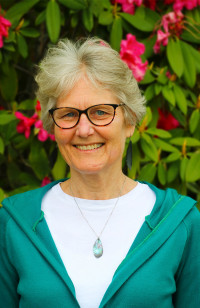
Heather Verstappen
BA, BSocSci, GDipTchg, PGDipSLTchg, GCertNDD | Study Support Advisor
Kia ora. I'm keen to help you step over any barriers and can help you manage time, plan assignments, get your ideas down, and write in an academic style. I enjoy working with ākonga who have different ways of learning (neurodiverse) and who may have reading, writing, and focusing challenges. I've taught English to speakers of other languages and enjoy working with ākonga from different cultures and backgrounds.
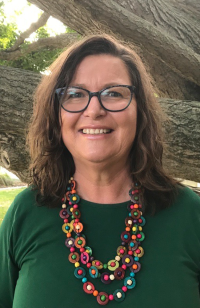
Emily Hargreaves
Dip Tchg | Wellbeing Support Advisor
Kia ora. My whānau home base is Whakatū, but I live in Waitohi. I started at NMIT after being a primary school teacher and principal. My biggest joy is to see others succeed. I provide diverse support and solve tricky problems in innovative ways. I hope to be part of your learning journey.
Find me on the Marlborough campus or at Base Woodbourne. Let’s catch up and have a chat!

